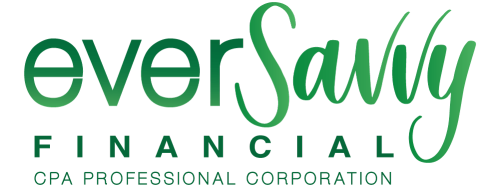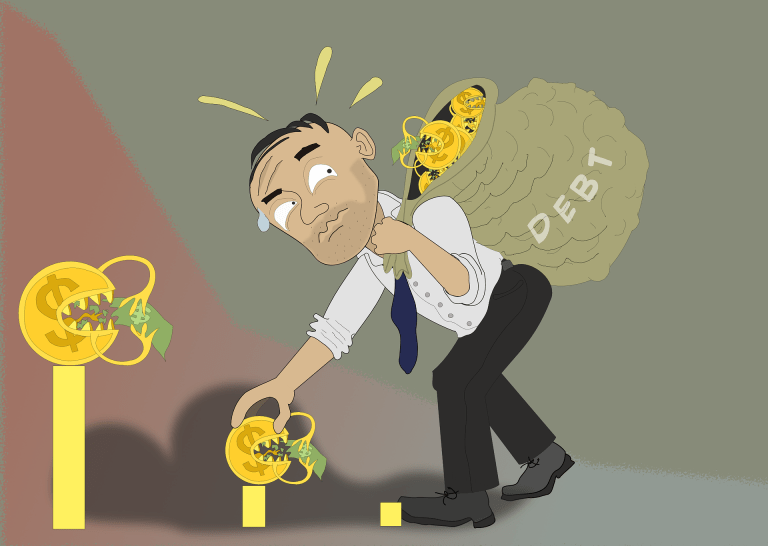Most people who know me know that I love anything to do with personal finances and money management. I can talk forever on these areas, often offering advice and guidance to anyone who asks. I was so excited when I discovered the TV show ‘Til Debt Do Us Part’ and ‘Princess’, and Gail Vaz Oxlade quickly became my financial entertainment hero. She would do and say the exact same things I was thinking. To this day, I admit that I still binge watch re-runs of her shows.
As I watched these shows, I used to always think to myself ‘This can’t be real! How are people THIS oblivious about their finances???’ I thought maybe it was made up stories just for entertainment. I even wanted to create a fake profile of myself so that I can go on the show and earn $5,000 for doing so well on the challenges, because it is so natural to me to live the way Gail preaches.
However, after doing further research, it became clear to me that many Canadians really do lack knowledge when it comes to their finances.
The more I read, the more I saw that there are a lot of people who have trouble aligning their financial goals with their habits. As a result, there is a lot of unnecessary financial stress in the marketplace as savings decline and debt levels rise.
Per the Financial Planning Standards Council (FPSC) 2016 survey of Canadians, 72% of Canadians worry about money at least once a week, with 23% worrying about it constantly(1). Yikes! Just think about that for a moment…almost ¾ of Canadians often worry about money. Given all of the opportunities and availability of support in Canada, that number is astonishingly high.
According to Statistics Canada, Canadians owed $1.71 in consumer credit, mortgages and non-mortgage loans for every dollar of household disposable income in the third quarter of 2017(2). That ratio increased on an annual basis, from first quarter of 2016 when Canadians owed about $1.64 per dollar of disposable income(3). For comparison, in 2000, Canadians owed $1.10 per dollar of disposable income(4).
Highly indebted households have less flexibility to deal with sudden changes in their income. Proving just how strapped some Canadians are, the 2017 Canadian Payroll Association survey shows that 22% of employees (nearly 1 in 4) say they could not come up with just $2,000 within a month for an emergency expense. Furthermore, 47% of working Canadians report it would be difficult to meet their financial obligations if their pay cheque was delayed by even a single week. The numbers are even higher for millennials in their 30s (55% would have difficulty) and Gen Xs in their 40s (51%)(5).
These results are alarming, and it will likely get worse with rising mortgage rates, unless people start making changes in their attitudes towards spending (and saving) that will lead to a less volatile and uncertain financial future.
Savings are down, Debt levels are up
In 2017, 42% of survey respondents (Canadian Payroll Association 2017 survey) said they save 5% or less of their earnings, below the 10% savings level generally recommended by financial planning experts(5).
Debt levels of working Canadians continue to remain high. Over one-third (35%) of working Canadians feel overwhelmed by their level of debt, and to take this a step further, 12% believe they will never be debt free(5). It’s troublesome to hear that some individuals believe they will NEVER be debt free.
Results indicate that the primary reason for increased debt is higher overall spending. Despite their unstable financial situation, 26% of working Canadians feel that earning more is their best way to financial well-being, versus just 19% who think spending less is the ticket to financial security(5). However, the median household income has not been keeping up with the rate of inflation, so earning more isn’t necessarily the answer.
This statistic indicates that a HUGE shift in perspective is needed. Have you been chasing that promotion for a while now, thinking that is your solution to making ends meet? Instead of chasing something in the future that is not concrete, why not work on your savings habits as an immediate solution that can empower you in the future.

Let’s make a New Years’ Resolution stop this trend
Be honest, does this sound like you? Does it seem like I’ve been talking about you this whole time? In 2018, make it your priority to reevaluate your financial well-being.
These results highlight the need for spending less and saving more every day, for emergencies and for retirement. While this may seem difficult, (especially given the ‘YOLO’ mentality that a lot of us have), proper financial planning can change your spending and saving patterns to secure your financial future. Don’t be afraid to take a deeper look at your financial situation so that you can start aligning your financial goals with your habits. Make one of your New Years’ resolutions to be more financially savvy; outline your goals, come up with a plan and monitor your results. Only you can control your financial future.
~ Anastasia Gazarek, The Savvy Saver


Recent Comments